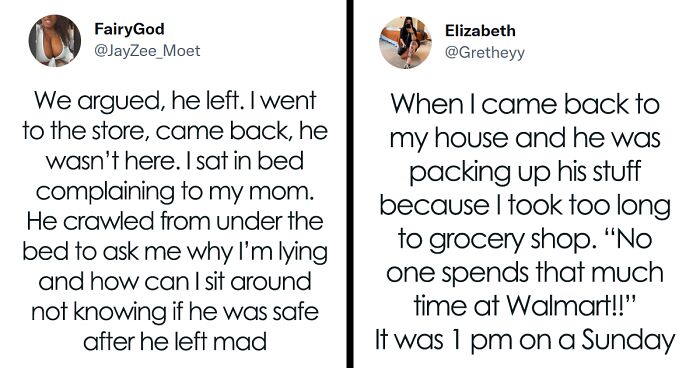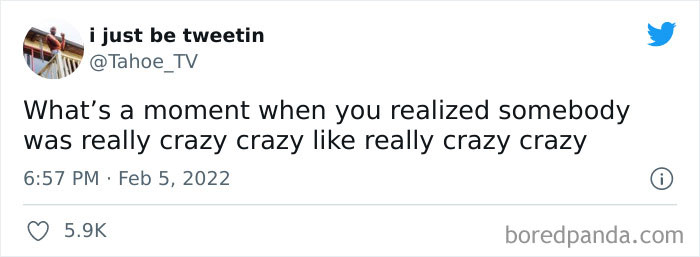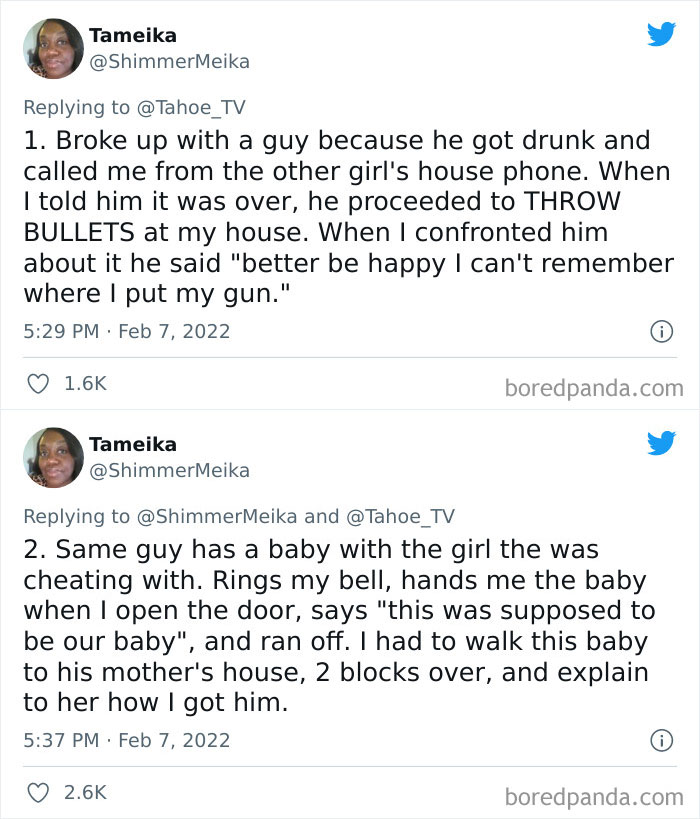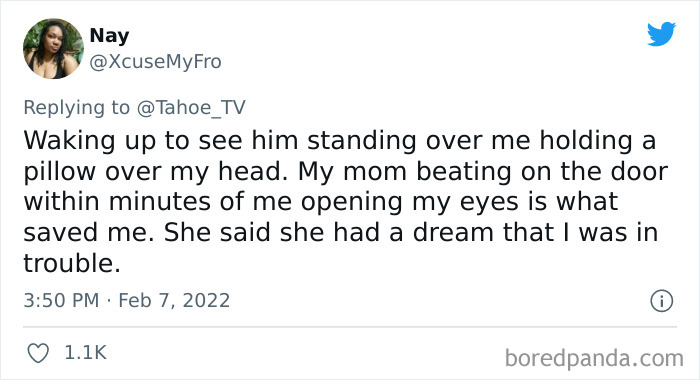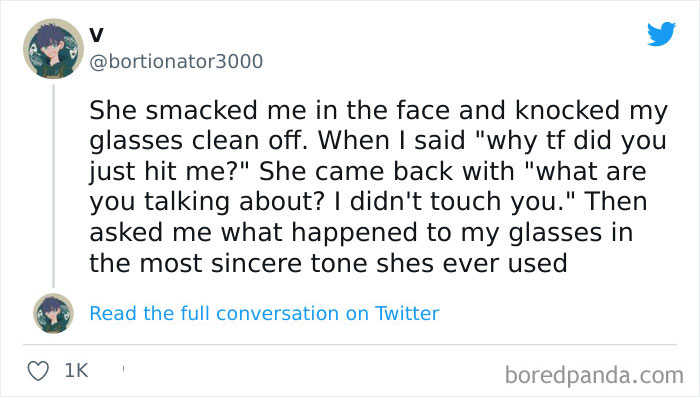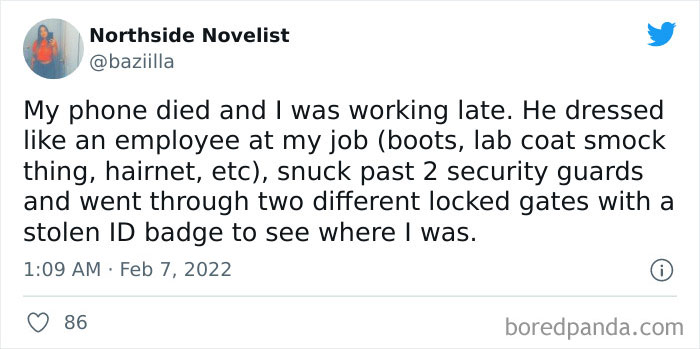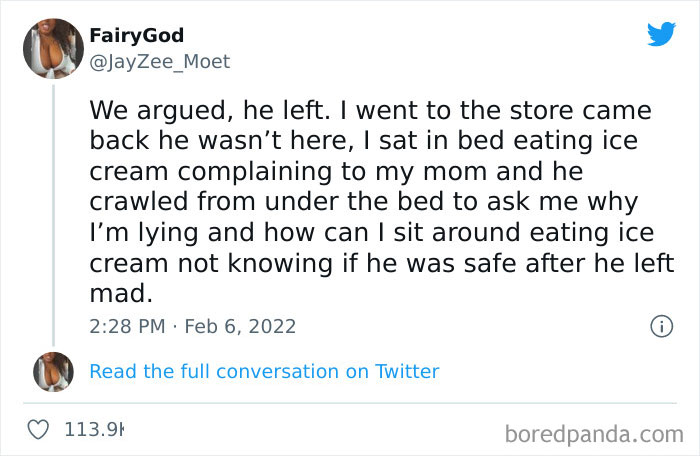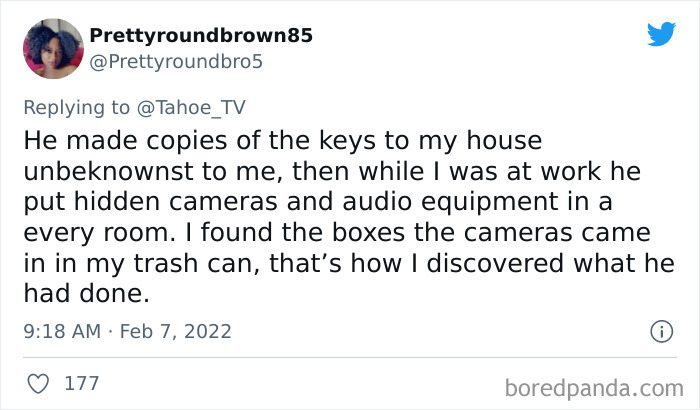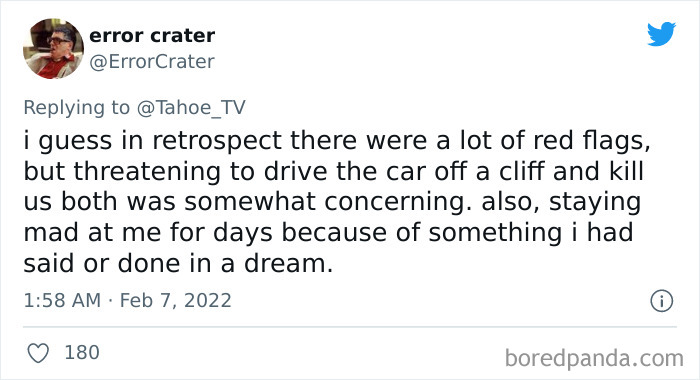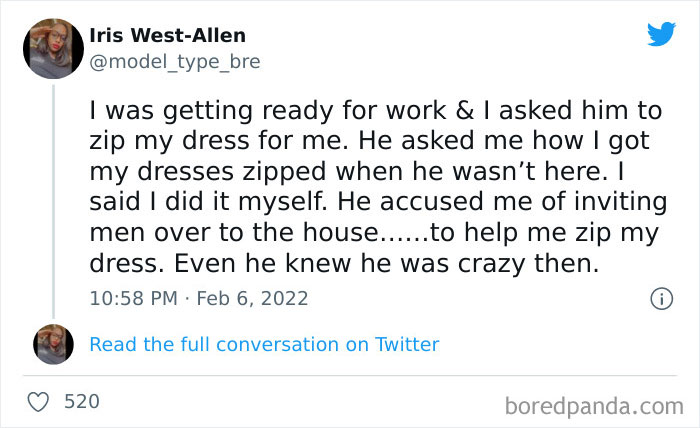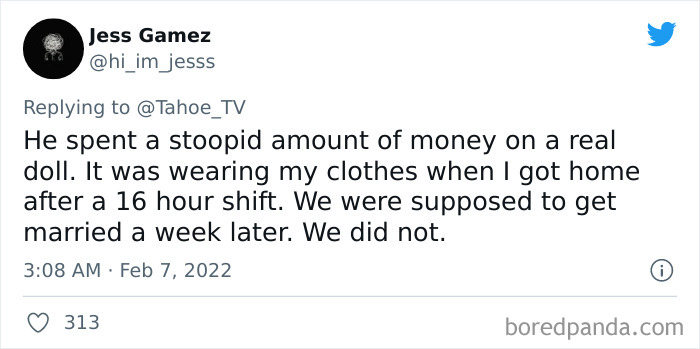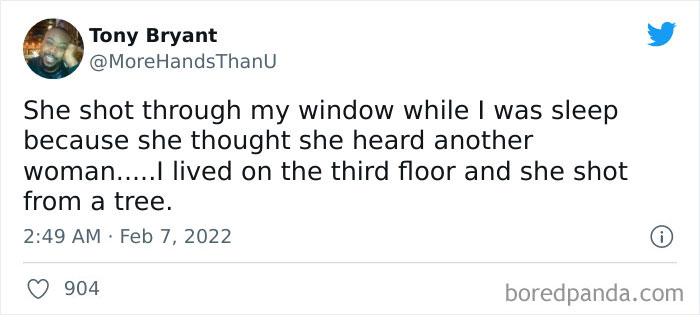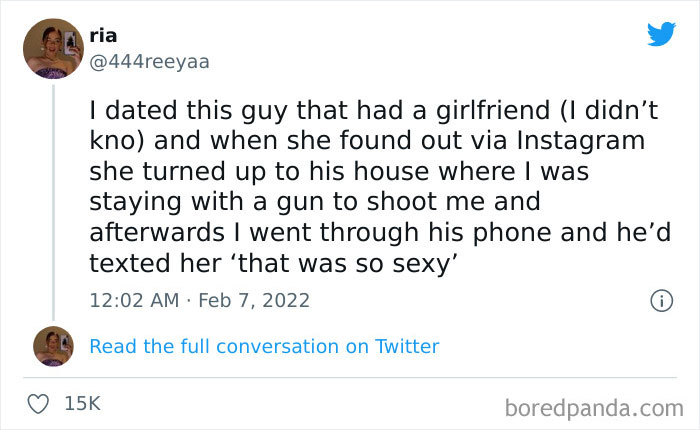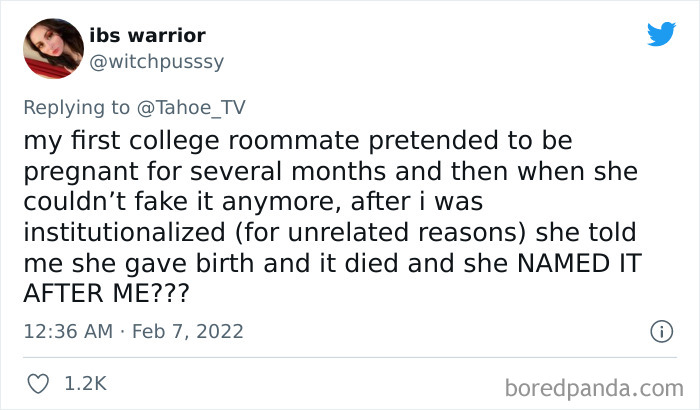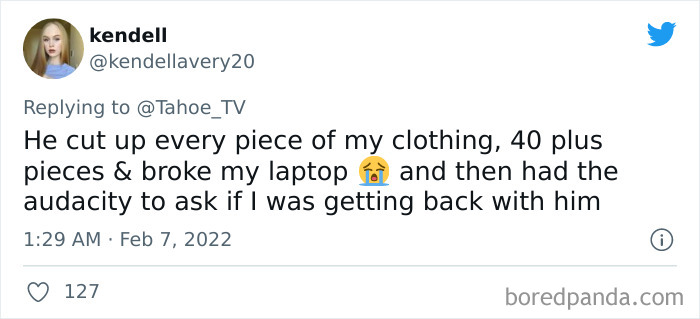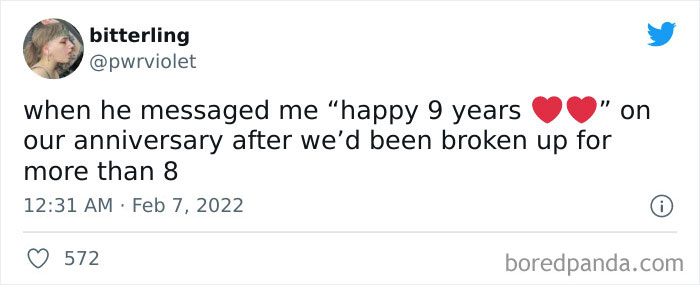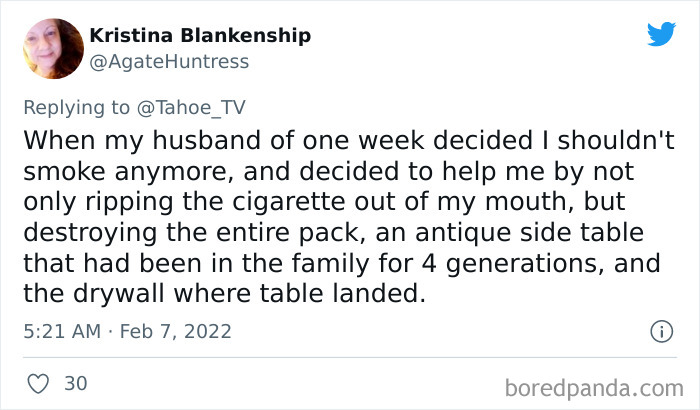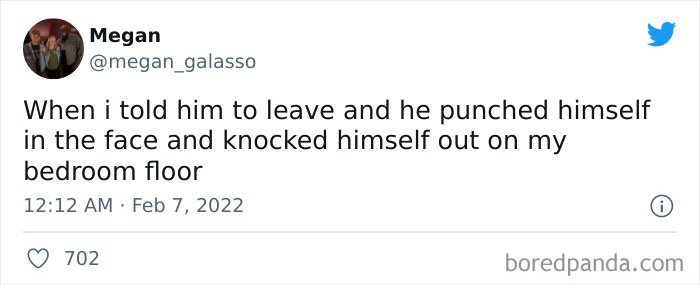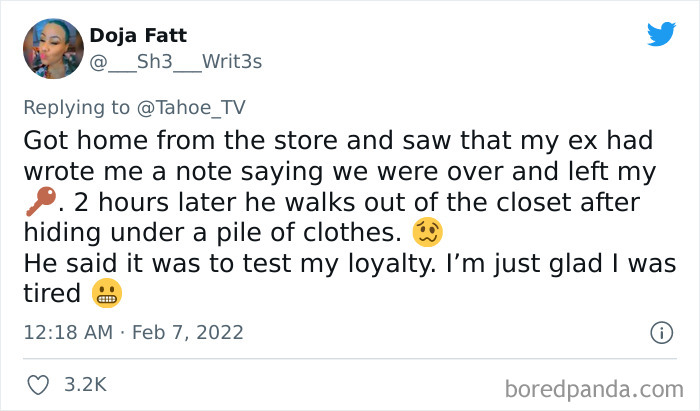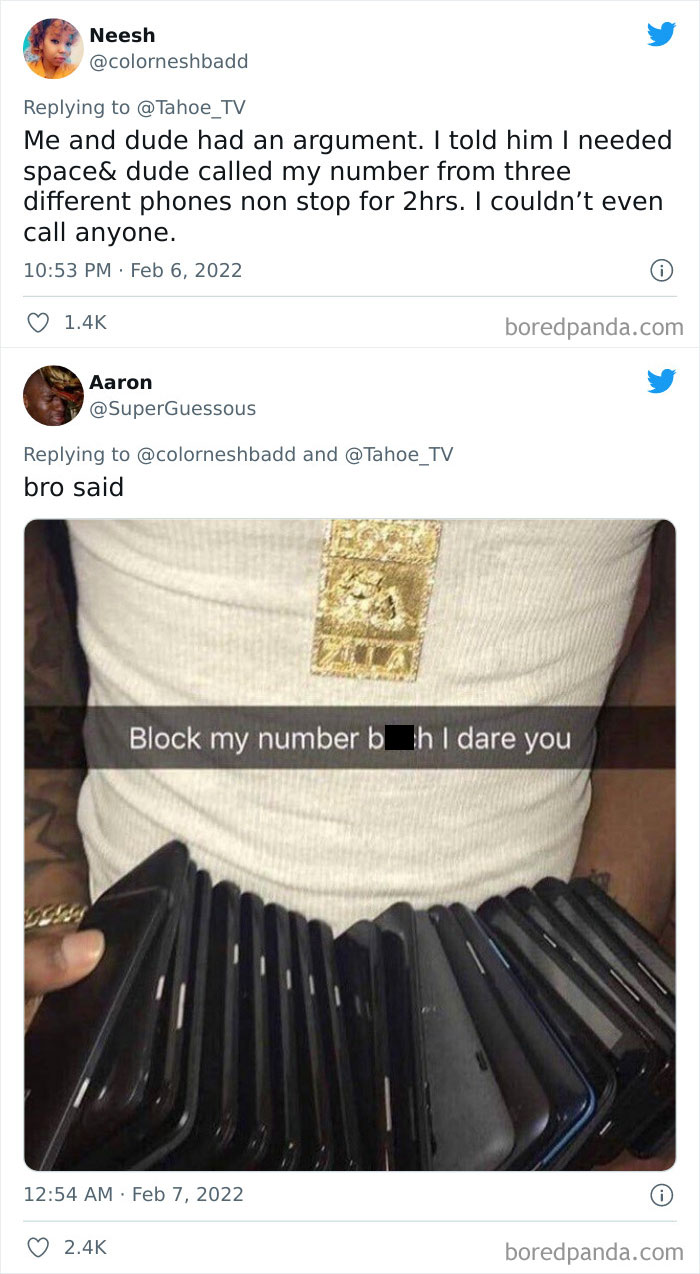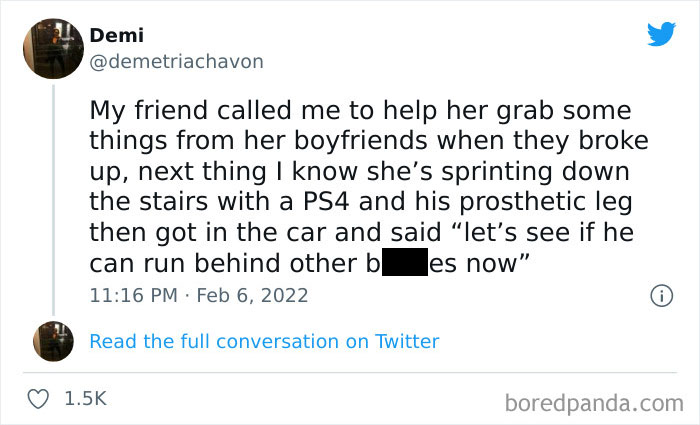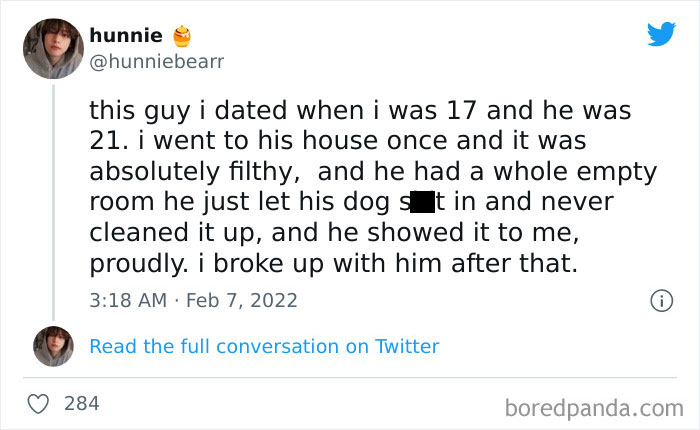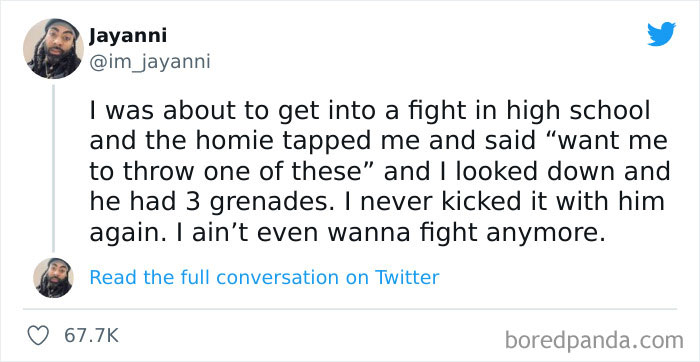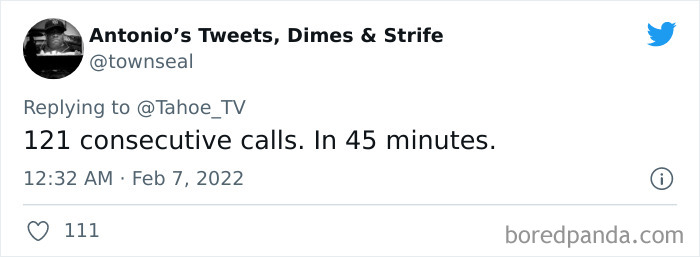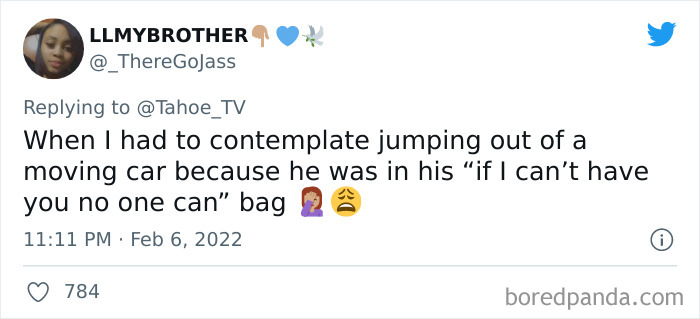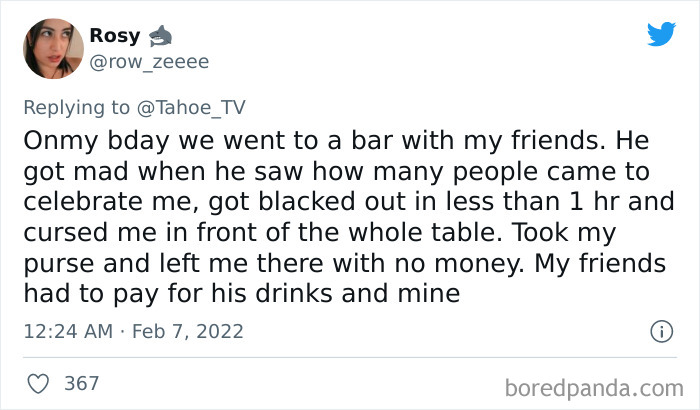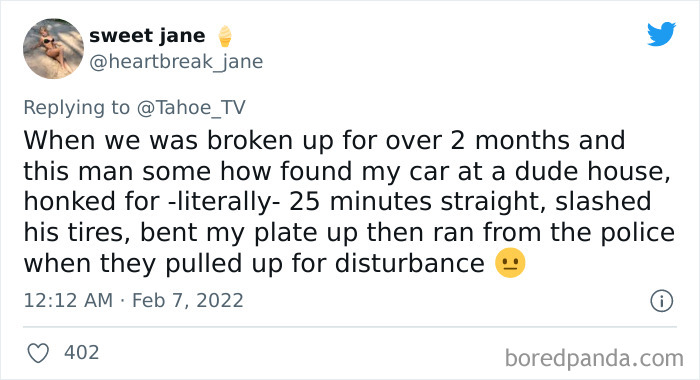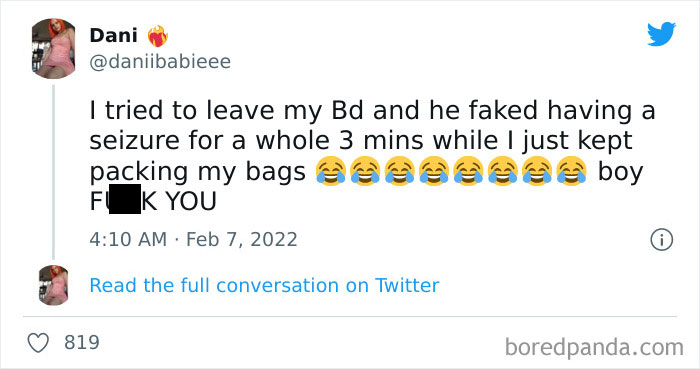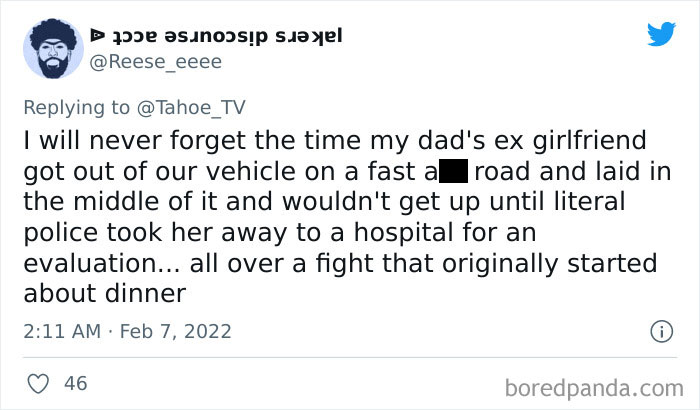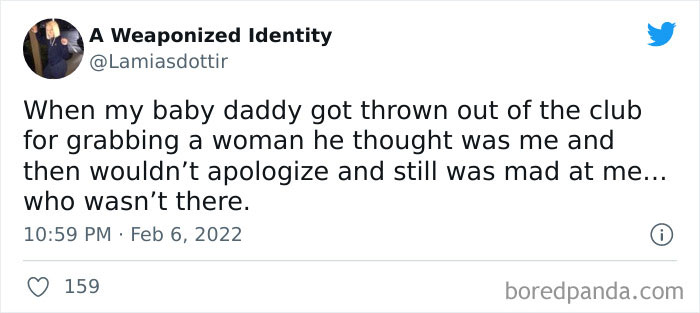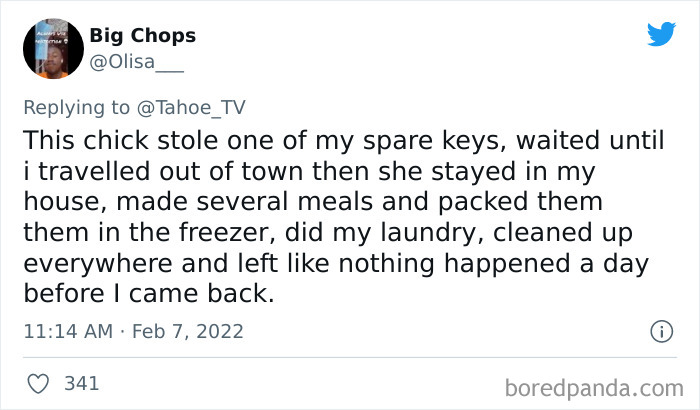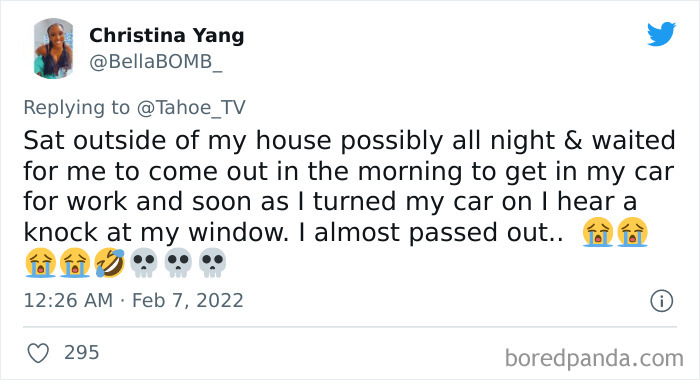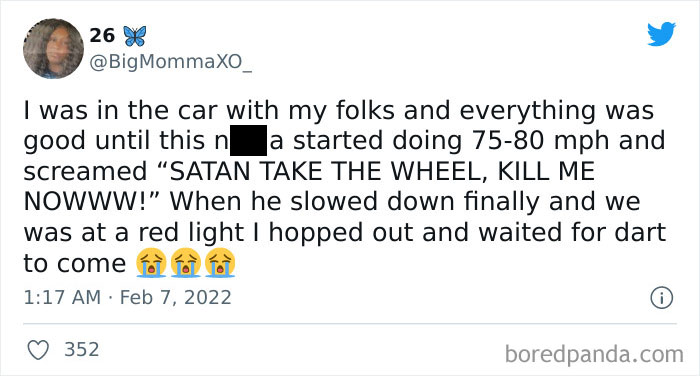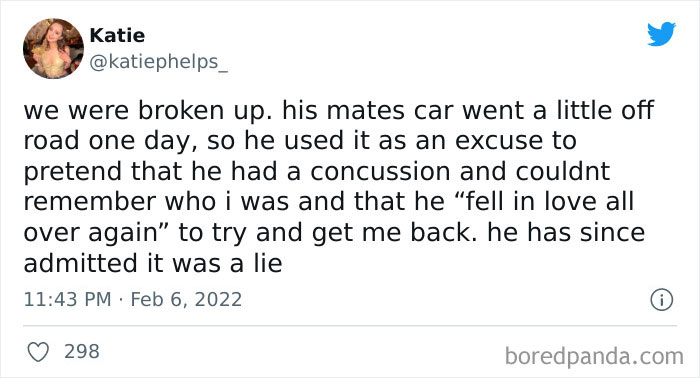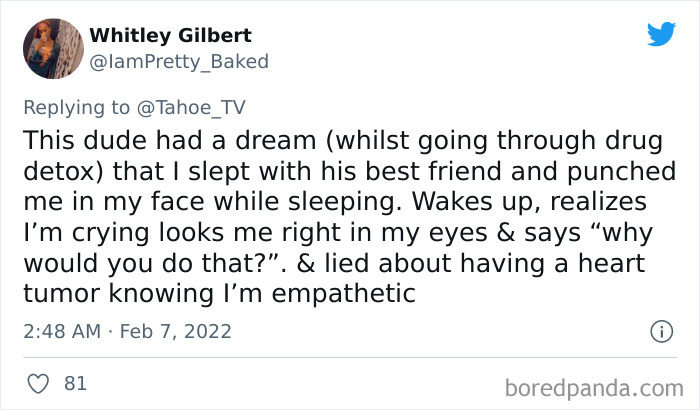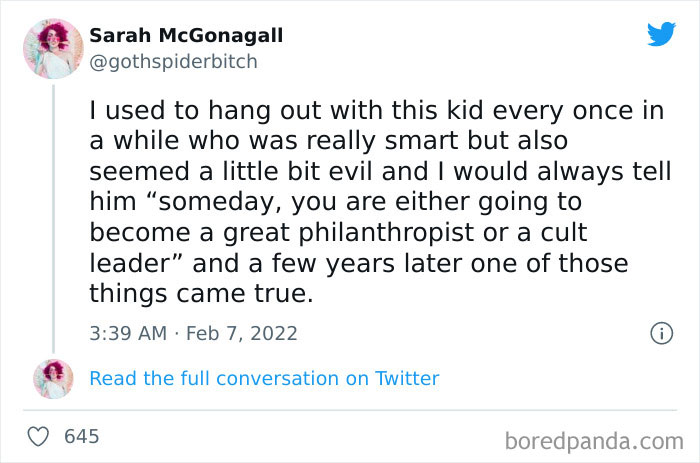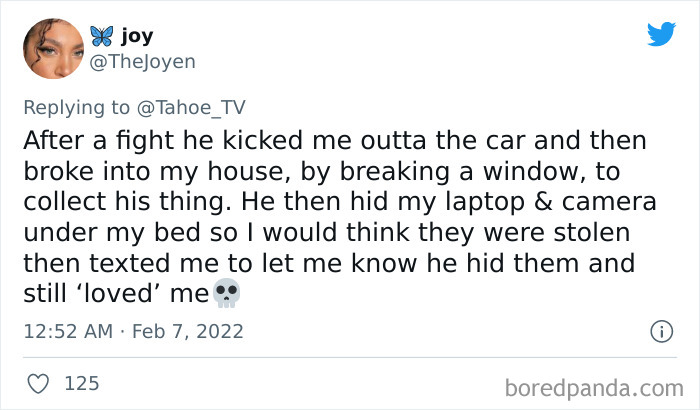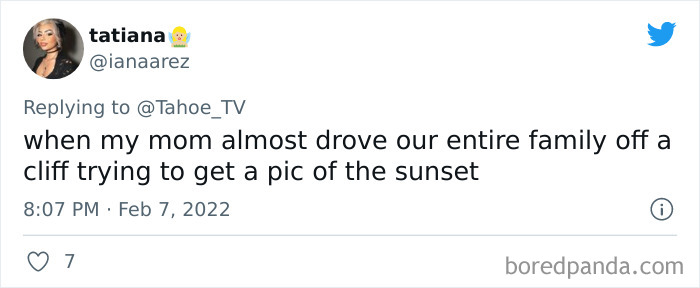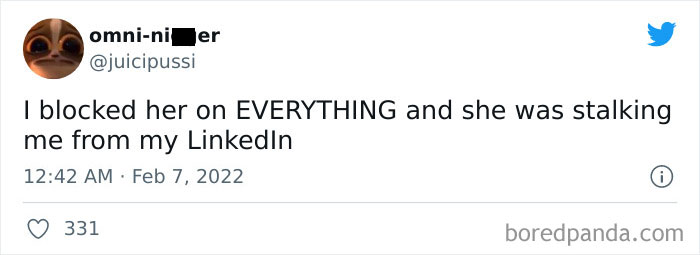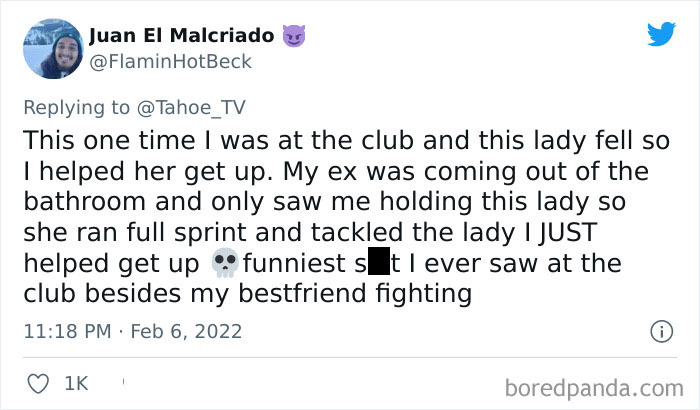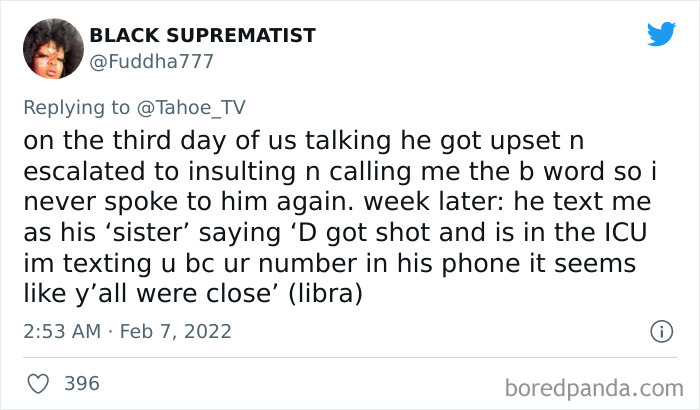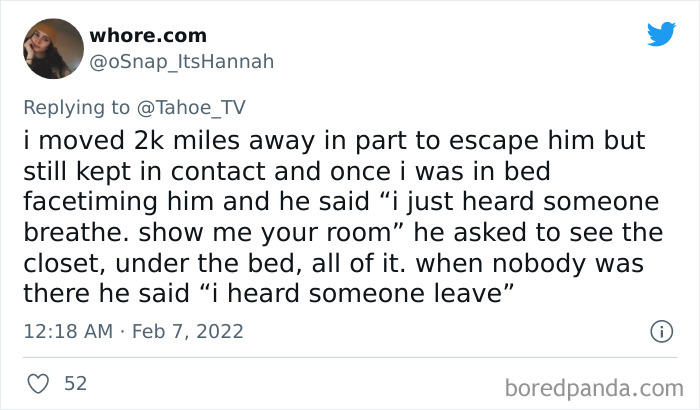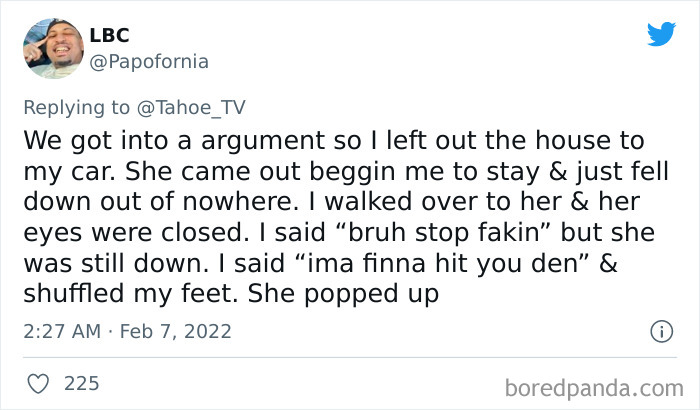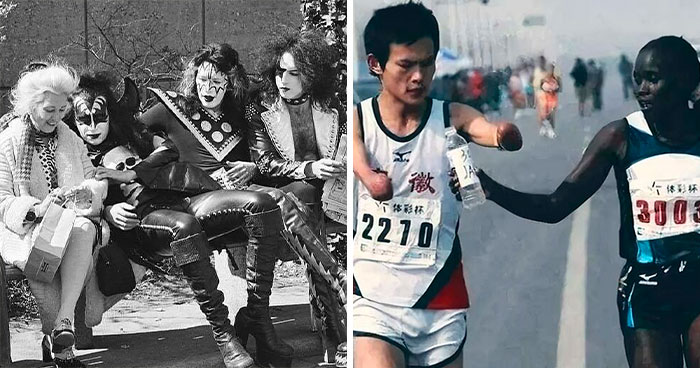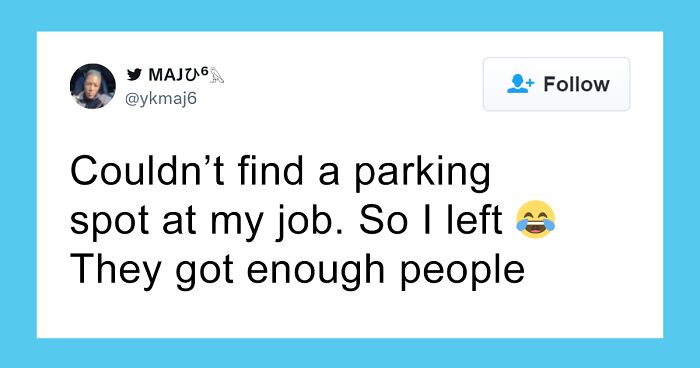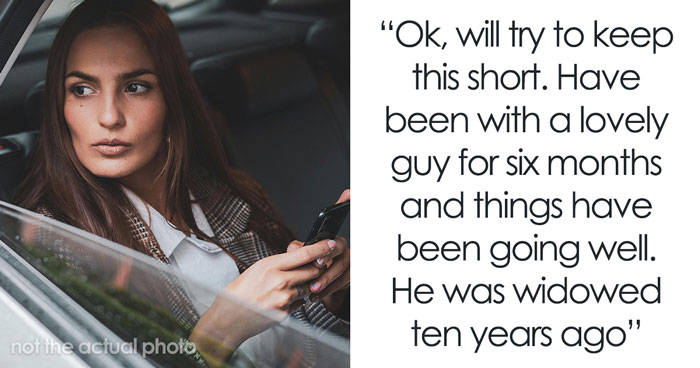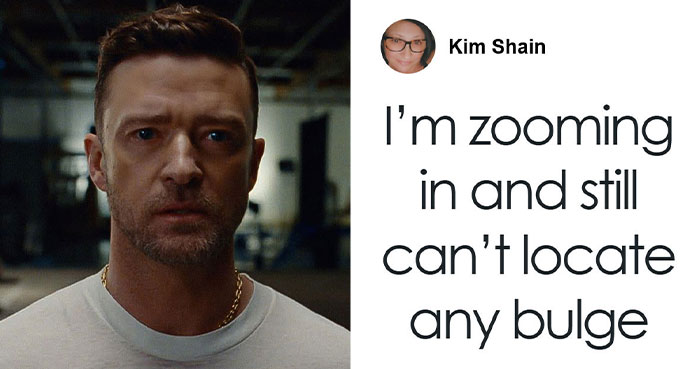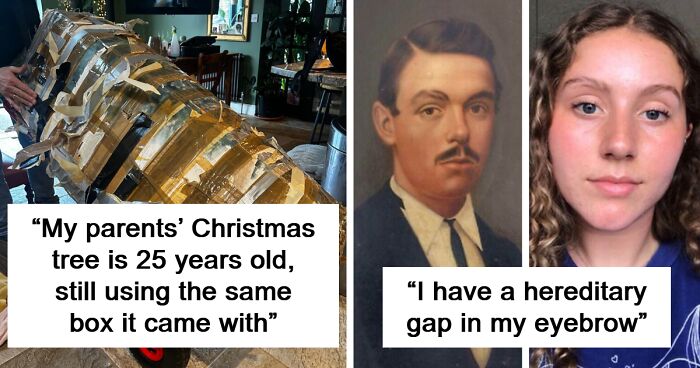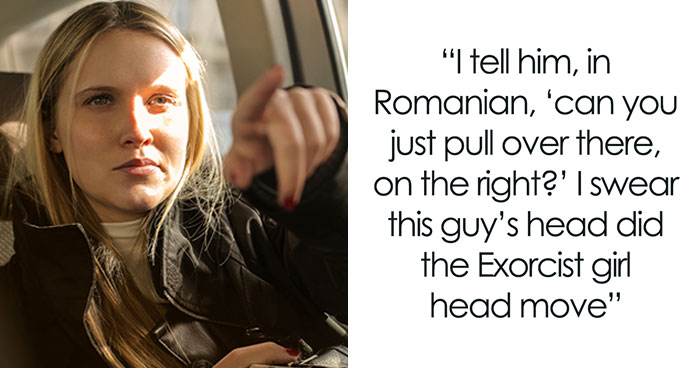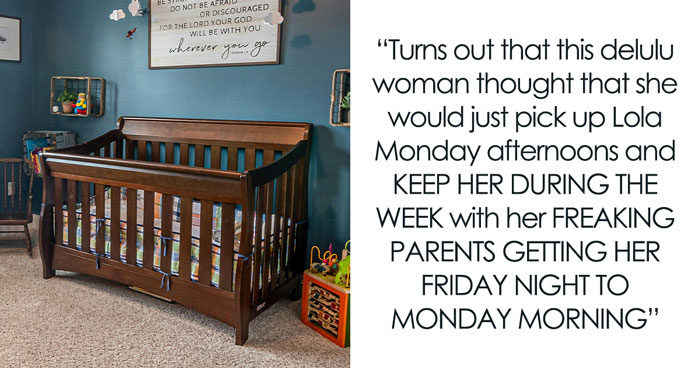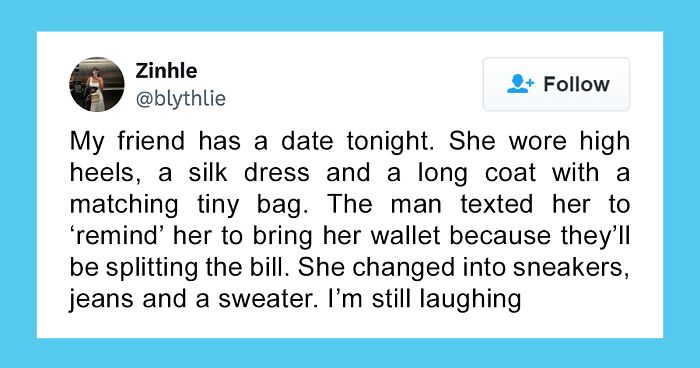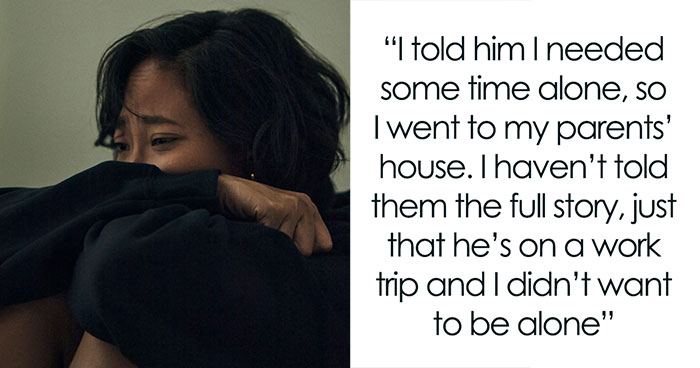No two humans are exactly alike. Everyone is weird in their own way. But that's not necessarily bad. In fact, the appeal of many artists, performers, and average folk is that they're delightfully odd and proudly non-conventional.
However, there's a fine line between quirky and creepy behavior. And media personality TahoeTV decided to find it. So he made a tweet asking people to describe the exact moment they noticed that someone was out of their mind.
Image credits: Tahoe_TV
Turns out, it's a topic many are interested in. Immediately, people started sending in their answers, sharing all the funny, strange, and downright scary experiences they went through. From cheating boyfriends to high school bullies, continue scrolling to meet their villains.
This post may include affiliate links.
But you might want to watch out for the word 'crazy'. For many of us, it has become such an integral part of our vocabulary, we even stop noticing it.
But there are good reasons why you might want to stop using that word. Brenda Curtis, PhD, MsPH, an assistant professor of Psychology in Psychiatry at Penn Medicine, who has done research on language thinks it might even have sexist undertones as there are gender-based stereotypes about women being irrational, hysterical, and disconnected from reality—all meanings that are associated with the word 'crazy'.
Hope she didn't stay around to get butchered because the voices told him things.
"One of the common stereotypes around mental health and substance use disorders is the idea of a moral failing," Curtis said.
"A lot of people will think, 'oh they're just sad, get over it,' or 'oh, if you don't want to use drugs, just stop, no one forced you to.'" She also highlighted that the thoughts about mental illness perpetuated by words like 'crazy' include the idea that people with mental illness are divorced and incapable of making decisions. These stereotypes and the sense of blame they place on a person with mental illness tend to cast people in a category of 'others' that few people want to claim as their identity.
Take them down and sell them. And change your locks. And get an intervention order.
"When you have a person who is having a hard time and needs to talk to someone and needs treatment, they're less likely to go to their physician or another person for help if they don't want that person to see them in a different light," Curtis explained.
In this way, attaching stigma to mental health conditions—by holding stereotypes, and creating social distance as a result of those stereotypes—can make it more difficult for people to seek help. "When stereotypes affect treatment, either initiation of treatment or treatment engagement, when it's isolating people, that's a problem."
He lost weight, so sending him back to his mommy is cheaper in postage.
But there's another problem with the word 'crazy.' It's ambiguous. It doesn't mean just one specific thing. Like many of us, Curtis has noticed how widely we use the word in casual conversation—in all kinds of different contexts, for all kinds of different reasons.
She thinks it reminds her of the way her parents taught her not to use curse words in casual conversation; when you use a curse word as an adjective or noun in a sentence instead of something more descriptive, it's not just rude, it's also a lazy way to avoid thinking of the more precise word you really mean.
At least she won't have to worry about him stalking her. He doesn't want a woman who takes too much time to do the shopping.
That's why I always find it so strange that people don't go after their partner when they cheated, but after the person they got cheated with. Those people most likely do not even know that they are in a relationship with a cheater.
Curtis noted there are three keys to using language about mental illness: use the correct words to describe something (the name of a diagnostic category if it's a mental illness, or a descriptive general word like 'outlandish' otherwise, not just 'crazy' for everything); acknowledge when stereotypes exist—and debunk them; and use language that acknowledges a person is separate from their illness.
Can we at least limit ourselves using that word? Do you think we have to? Let us know in the comments.
There still is something like the legal system where you sue them and get all of your costs reimbursed.
Changing your telephone number doesn't seem a bad idea at this point.
Been sexually assaulted twice in my sleep. Second time was by the woman I was dating and I just wanted to sleep. So she tied my hands in my sleep and sat on my chest holding a knife.
Yeah, one of my stalkers was caught with 47 cell phones in his car while he was trying to buy a gun to shoot me with. Thank you California gun laws and background checks.
The prosthetic leg just makes me think of Rocket from GotG. "Imma get that leg!"
Ah, yes, the old "you're not supposed to have any friends but ME!" kind of boyfriend.
They should have called the cops immediately for stalking and file for a restraining order.
I would've drove on home & left her there. The attention is all she wants.
I don’t know what to think about this one. Clearly wrong, but clean house and laundry at least. Idk if I’d eat the food tho
I just don't understand why some guys are like this. Is it fun scaring people? Do you get a hard off of it?
Just remember that stalking and abusive behaviour is not a mental illness, and that people with mental illnesses are more likely to be the victim of violence and abuse, not the perpetrator.
It's true that it's not a mental illness in its own right, but it's not as simple as 'mad, sad or bad' and there are several diagnoses that might involve this kind of behaviour for very different reasons, such as psychopathy, sociopathy, narcissistic personality disorder, borderline personality disorder, psychosis, substance addictions etc.
Load More Replies...Yes my sweethearts all these examples are those of an abusive person in terms of DOMESTIC VIOLENCE. Not one is crazy, they are have poor boundaries and are not good romantic partners or people to work with. Please reframe the title, it is erroneous and misleading - as well as dismissive of those with mental health illness.
exactly the opposite. It would be dismissive to those with mental health illness to call THEM crazy but not this behaviour here.
Load More Replies...My ex. Told my husband he paid for my big ass wedding ring with the child support he sent me every month. He only paid 35$ a month. He also told my husband who was at my work at the time leaving me lunch....that I was at his house screwing him. Like dude. Its been 6 years gtfoi!!!!
Just remember that stalking and abusive behaviour is not a mental illness, and that people with mental illnesses are more likely to be the victim of violence and abuse, not the perpetrator.
It's true that it's not a mental illness in its own right, but it's not as simple as 'mad, sad or bad' and there are several diagnoses that might involve this kind of behaviour for very different reasons, such as psychopathy, sociopathy, narcissistic personality disorder, borderline personality disorder, psychosis, substance addictions etc.
Load More Replies...Yes my sweethearts all these examples are those of an abusive person in terms of DOMESTIC VIOLENCE. Not one is crazy, they are have poor boundaries and are not good romantic partners or people to work with. Please reframe the title, it is erroneous and misleading - as well as dismissive of those with mental health illness.
exactly the opposite. It would be dismissive to those with mental health illness to call THEM crazy but not this behaviour here.
Load More Replies...My ex. Told my husband he paid for my big ass wedding ring with the child support he sent me every month. He only paid 35$ a month. He also told my husband who was at my work at the time leaving me lunch....that I was at his house screwing him. Like dude. Its been 6 years gtfoi!!!!

 Dark Mode
Dark Mode 

 No fees, cancel anytime
No fees, cancel anytime 


